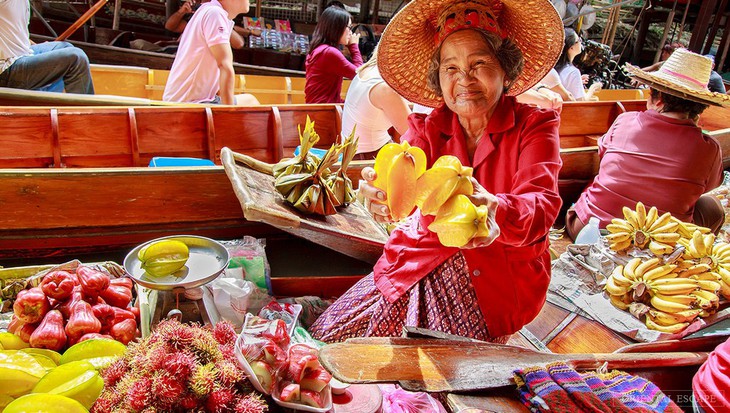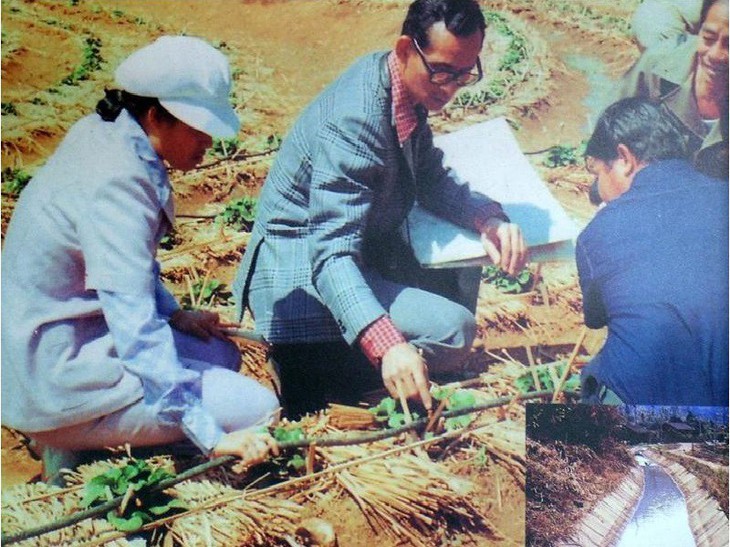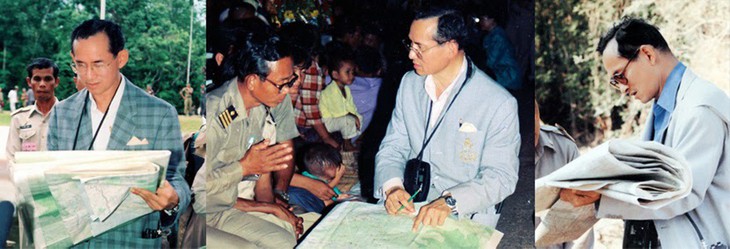TTO – As a country with a developed agricultural sector, Thailand has also gone through challenging and worrying periods. However, their greatest strength lies in having the right philosophy for farming.
A woman selling fruit at the Damnoen Saduak floating market near Bangkok – Photo: livingnomads
For Thailand, the 1997 financial crisis was a costly lesson in unbalanced and unsustainable growth. One of the reasons stemmed from an unsuitable course of economic and social development, in which the economy relied too heavily on foreign capital and external markets.
The production sector, including agriculture, was mainly export-oriented to earn foreign currency. As a result, farmers in some areas had to buy rice to eat even though they grew it themselves. The crisis hit when production expanded but there were no buyers.
“Sufficiency Economy”
Since 1973, on many occasions when addressing his people, the late King Bhumibol Adulyadej of Thailand emphasized a development orientation based on sufficiency, moderation, frugality, rationalization, and the creation of “social immunity” for the majority of people engaged in agriculture.
The King warned Thais not to live carelessly, and even in making money, development must follow sound theories and always remain within moral boundaries. This philosophy became known as the Sufficiency Economy.
When the country went through the 1997 financial crisis, the King reminded his subjects of the need for self-reliance. In his birthday speech on December 4, 1997, he explained:
“Recently, many projects have been implemented, many factories have been built, and people thought Thailand would become a small tiger, then a big tiger. Everyone was excited about becoming a tiger… Being a tiger is not important; what matters to us is having a sufficiency economy. A sufficiency economy means having enough to support ourselves…”
The “Sufficiency Economy” is not a theory about how a national economy operates, but rather a guiding principle for making sound decisions beneficial to development, according to the National Economic and Social Development Board (NESDB) – the government agency mainly responsible for its implementation.
King Bhumibol Adulyadej guiding Thai farmers in cultivation and irrigation – archival photo
The King’s Vision
Thailand is located in a region rich in biodiversity, with fertile land capable of producing many food crops. For thousands of years, the Thai people have lived by farming, thriving thanks to the abundance of fertile soil, the sea, and rivers.
The late King Bhumibol understood this very well. He consistently emphasized the absolute importance of land and water—two essential factors in agricultural development. It is no coincidence that around 2,000 water resource development projects were initiated by the Thai Royal Family across the country.
From his very first field trip after ascending the throne, King Bhumibol met directly with farmers, inquired about their living conditions, inspected maps he had drawn himself, took photographs, and recorded everything worth remembering. The Thai saying, “There is no place in this country where the King’s footsteps have not been left” originates from this very fact.




